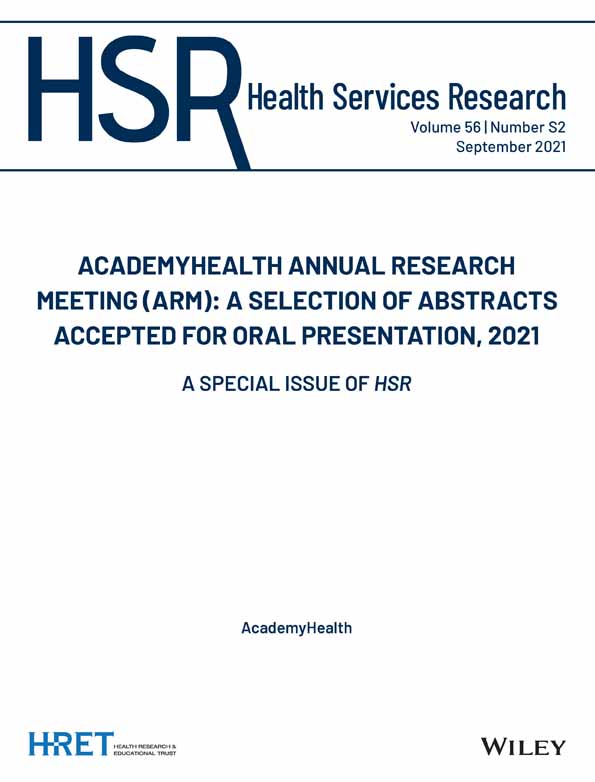Virtual Patient (VIP) Engagement Studio: Using Technology to Engage Hard-to-Reach Patients
Abstract
Research Objective
Patient engagement in research involves patients and caregivers as experts and collaborators who impactfully contribute to the research continuum. Traditionally, most patient engagement activities were facilitated in-person. Little is known about methods and effectiveness of virtual engagement. This project aims to build capacity for and implement a diabetes-focused VIrtual Patient (VIP) Engagement Studio, with emphasis on geographically dispersed and hard-to-reach patients, to facilitate engagement efforts along the diabetes continuum of comparative effectiveness research and patient-centered outcomes research (CER/PCOR).
Study Design
This engagement project realizes its objectives through: (1) Building a diverse network of geographically dispersed VIP Studio patient experts (VIPs) who can serve as experts with lived experiences of diabetes and can be meaningfully involved in the VIP Studio; (2) Training recruited VIPs and implement the VIP Studio activities by engaging VIPs in ongoing and new CER/PCOR research opportunities; (3) Evaluating the virtual experience and disseminate the capacity-building plan to expand and replicate the VIP Studio among other PCOR partners.
Population Studied
South Carolina (SC) ranks fifth highest in the US in the percentage of population with diabetes, with major racial & geographic disparities. While over one-third of SC population are minorities or live in rural areas, engagement of patients and stakeholders from these communities in CER/PCOR remains limited partly because of transportation and other access issues. The VIP Studio can support efforts relating to the engagement of hard-to-reach population groups. VIP Expert eligibility includes being 18 years-old or older, have diabetes or be the caregiver to someone with diabetes, and live in South Carolina, North Carolina, or Georgia.
Principal Findings
51 individuals attended (out of 93 who signed up) one of 23 informational sessions held over two months; of which, 46 completed the application for the 25 VIP spots available. The selection of VIPs was an iterative process that ensured diversity, in terms of gender, rurality, race and ethnicity, educational attainment, age, caregiver status, and county. Seven virtual training sessions were conducted to build trust, generate patient-centered questions, and establish basic premises of research and how to partner in research. The sessions included training on virtual platforms used, an overview of the 10-Step Framework of Continuous Patient Engagement, understanding diabetes, introduction to research with emphasis on CER/PCOR, formulating research “wonderings” into research questions, and communicating with researchers. Various trust-building and team-building activities were incorporated in all sessions. At least five research ‘review’ sessions are planned for the remainder of the project. The process, methods, key learnings and experiences from the VIP Studio will be presented.
Conclusions
The VIP Engagement Studio has potential to expand the participation of diverse patient groups, providing a patient perspective of health issues that is more representative of the patient population afflicted with diabetes.
Implications for Policy or Practice
This project demonstrates the feasibility of expanding the VIP Studio as an infrastructure model that can be scaled-up to a regional and national levels. Ultimately, this virtual model can be useful in nation-wide, multi-site studies where each site may be enrolling patients from geographic areas that may have unique concerns to that region or area.
Primary Funding Source
Patient-Centered Outcomes Research Institute.




